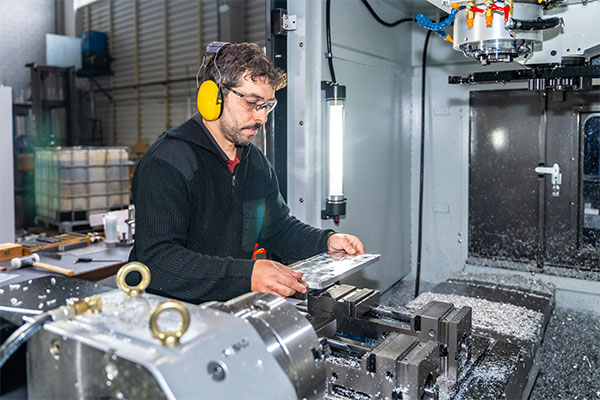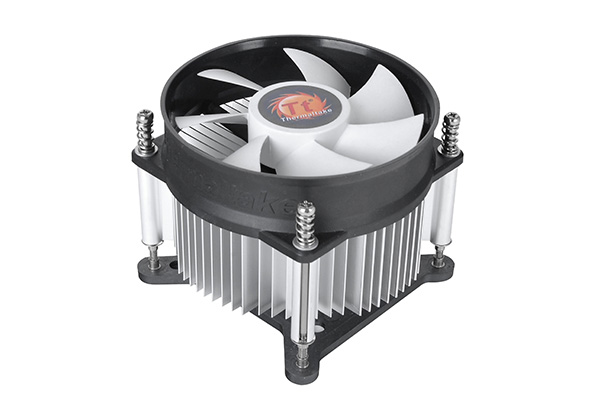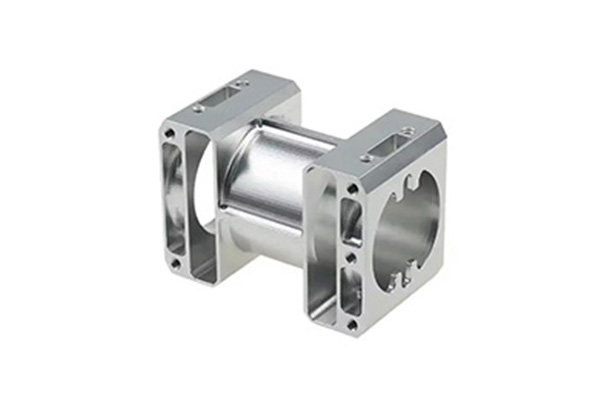Introduciton
In this article, we will explore the top metal machining services available for precision parts, highlighting the different methods, benefits, and applications of metal machining. Metal machining is an essential process for creating accurate and complex parts used in a wide range of industries. Whether you’re a manufacturer looking for custom components or simply curious about the capabilities of modern machining, this article will provide you with all the information you need.

1. What Are Metal Machining Services?
Metal machining services involve the use of specialized machinery to cut, shape, and finish metal parts to precise specifications. These services are integral to industries like automotive, aerospace, and manufacturing, where high precision and quality are essential. Metal machining can be done through various processes such as CNC machining, turning, milling, and grinding.
But here’s the kicker: choosing the right machining service can make or break your production timeline and budget. So, let’s break down what metal machining services entail and why they matter.
At its core, metal machining is all about transforming raw metal materials into parts that meet exact specifications. The process can involve subtracting material from a solid block using cutting tools, which is why precision and expertise are critical.
Metal machining services are typically offered by specialized manufacturers who provide a wide range of machining options. These options allow clients to order custom parts or standard components, all made with precision and efficiency. The use of Computer Numerical Control (CNC) technology in modern metal machining ensures that parts are created with consistent accuracy, reducing the margin for error.
To give you an idea of how important metal machining is, think about the automotive industry. Cars require thousands of components, many of which are produced using advanced machining services. From engine parts to frame components, each part must meet strict safety and performance standards. With metal machining, manufacturers can ensure that every piece is up to spec.
2. How Do Metal Machining Services Work?
So, how exactly do metal machining services work? The process begins with a detailed blueprint or design of the part, typically created using computer-aided design (CAD) software. The next step is selecting the right material for the job, as different metals have varying properties that make them suitable for specific applications.
Once the material is chosen, the part is placed on the machining machine, where the actual cutting or shaping process begins. CNC machines are programmed to follow the design instructions, making precise cuts and adjustments as needed. The machines use various tools such as drills, lathes, and mills to carve the metal into the desired shape.
What’s the real story? The magic happens when these machines perform multiple steps without human intervention. This allows for faster production and higher consistency, reducing the chances of human error. Plus, modern machines can work with a variety of metals, from aluminum to titanium, and can handle complex designs that would be nearly impossible to create by hand.
The final step in the process is finishing. After the part has been machined, it undergoes a series of finishing processes to smooth edges, improve surface texture, or add coatings for protection. This final touch is what gives the part its polished look and functionality.
Metal machining services offer a wide range of options depending on the complexity of the project. Some services specialize in high-volume production, while others focus on custom parts for more specialized industries.
| Process Type | Penerangan | Common Applications |
|---|---|---|
| CNC Turning | Rotating metal to shape it into required dimensions. | Automotive, Aerospace |
| Pengilangan CNC | Using rotating cutters to remove material. | Medical, Electronics |
| CNC Drilling | Creating holes with rotating bits. | Manufacturing, Construction |
| CNC Grinding | Smoothing and shaping with rotating abrasive wheels. | Tooling, Aerospace |
3. What Types of Metal Are Used in Machining Services?
When it comes to metal machining, the type of material used plays a huge role in the final product. So, which metals are most commonly used in metal machining services? Ready for the good part? Here’s a breakdown of some of the most popular metals used in machining:
- aluminium: Lightweight and highly machinable, aluminum is one of the most commonly used metals in machining services. It’s ideal for parts that need to be lightweight but strong, such as in the aerospace and automotive industries.
- Keluli: Steel is known for its strength and durability. It’s commonly used in machining services for parts that need to withstand high stress, such as engine components, structural parts, and industrial tools.
- titanium: Although more expensive, titanium is highly corrosion-resistant and strong. It’s often used in high-performance industries such as aerospace and medical devices, where strength-to-weight ratio is critical.
- Tembaga: Brass is a corrosion-resistant metal that’s often used for parts requiring good thermal conductivity, such as in electronics and plumbing.
What’s interesting is that each metal offers different advantages depending on the application. Aluminum might be chosen for its lightness, while steel might be the go-to for its sheer strength and durability.
Additionally, some machining services specialize in working with specific metals, especially when high precision or unique material properties are required. For instance, aerospace parts often require machining services that specialize in titanium or high-strength steel alloys.
| Metal Type | Kelebihan | Common Applications |
|---|---|---|
| aluminium | Lightweight, corrosion-resistant | Aerospace, Automotive |
| Keluli | Strong, durable | Construction, Machinery |
| titanium | High strength-to-weight ratio, corrosion-resistant | Aerospace, Medical |
| Tembaga | Corrosion-resistant, good thermal conductivity | Electronics, Plumbing |
4. Why Should You Choose Metal Machining Services?
Why should you choose metal machining services over other methods of manufacturing? The answer lies in precision, flexibility, and cost-effectiveness. Here’s why metal machining services are the go-to option for so many industries:
Metal machining services offer unparalleled accuracy, ensuring that parts are made to precise specifications. Whether it’s a small batch of custom parts or a large-scale production run, the ability to meet exact measurements is a key advantage. In fact, CNC machines can achieve tolerances as small as a few microns, which is essential for industries like aerospace, where precision is critical.
But wait, there’s more! Metal machining services also offer flexibility. They can handle both simple and complex designs, and you can work with a wide variety of materials. Whether you need a single prototype or thousands of parts, machining services can accommodate your needs.
Furthermore, machining services can save you time and money in the long run. With automated processes, production speeds are faster, and there’s less room for human error. Additionally, outsourcing your machining needs can free up your internal resources to focus on other aspects of your business.
For businesses in industries like automotive, aerospace, and manufacturing, using metal machining services is a smart move. Not only will it ensure high-quality parts, but it can also streamline your operations and reduce overhead costs.
| Benefit | Explanation |
|---|---|
| Ketepatan | High accuracy and tight tolerances |
| Flexibility | Ability to handle both simple and complex designs |
| Cost-Effectiveness | Faster production and reduced errors |
| Time-Saving | Automation reduces manual labor and lead times |

5. How Does CNC Metal Machining Benefit Your Business?
CNC metal machining has revolutionized the manufacturing industry, offering businesses a way to create parts with exceptional precision and efficiency. So, how does CNC machining benefit your business? This is where it gets interesting…
CNC (Computer Numerical Control) machining uses computer software to control machine tools, ensuring that parts are made with incredible accuracy and consistency. This level of automation reduces the need for manual labor and increases production speeds, which ultimately lowers costs and boosts efficiency.
What’s even better is that CNC machining can handle complex designs that would be nearly impossible to achieve with manual processes. From intricate curves to fine details, CNC machines can produce highly sophisticated parts with ease.
For businesses, this means faster turnaround times and fewer mistakes. Since the machines follow precise instructions programmed into their systems, there’s no need to worry about human error during production. This leads to higher quality parts and more reliable results, which is essential for industries like aerospace and medical device manufacturing, where quality cannot be compromised.
Furthermore, CNC machining is scalable, making it suitable for both small and large production runs. Whether you need just a few parts or thousands, CNC machining services can handle the job efficiently.
| Benefit | Explanation |
|---|---|
| Ketepatan | Achieves high accuracy and tight tolerances |
| Efficiency | Automated processes reduce production time |
| Flexibility | Can handle complex designs and materials |
| Scalability | Suitable for small and large production runs |
6. What Are the Different Types of CNC Machining Processes?
There are several different types of CNC machining processes, each suited for specific applications. Here’s a look at some of the most common processes used in the industry today:
- CNC Turning: In CNC turning, the material is rotated while a stationary cutting tool removes material. This is ideal for producing cylindrical parts, such as shafts and rods. The machine can cut the material to the desired diameter and length with high precision.
- Pengilangan CNC: CNC milling involves using a rotating cutter to remove material from a workpiece. This process can create parts with complex geometries, such as holes, pockets, and intricate surfaces. CNC milling is highly versatile and can handle a wide range of materials.
- CNC Drilling: CNC drilling is used to create holes in parts. It’s commonly used in industries where parts require precise, consistent holes. CNC drilling machines use rotating drill bits to cut into the material, creating uniform holes in various sizes.
- CNC Grinding: CNC grinding is used to finish parts by removing small amounts of material to create smooth, precise surfaces. It’s often used for parts that require a high degree of smoothness, such as gears or engine components.
Each of these processes plays an important role in producing high-quality parts for a wide variety of applications. Whether you need precision holes, complex shapes, or smooth finishes, CNC machining offers a solution.
| Process Type | Penerangan | Aplikasi |
|---|---|---|
| CNC Turning | Rotating workpiece with stationary tool | Shafts, rods, cylindrical parts |
| Pengilangan CNC | Rotating cutter removes material | Complex shapes, pockets, holes |
| CNC Drilling | Creates holes with rotating drill bits | Manufacturing, toolmaking |
| CNC Grinding | Finishes parts by removing small material | Gears, engine components |
7. What is Precision Machining in Metalworking?
Precision machining is a term used to describe the process of producing highly accurate and detailed parts from metal materials. This type of machining ensures that each part meets exact specifications, with minimal deviation from the design. Precision machining is commonly used in industries like aerospace, automotive, and medical, where even the smallest discrepancy can lead to significant problems. The core objective of precision machining is to achieve tight tolerances and create parts that fit perfectly together.
So, how do manufacturers achieve such precision? The answer lies in the sophisticated technology and techniques employed. Computer Numerical Control (CNC) machines are particularly adept at precision machining. These machines follow highly specific commands to cut, mill, drill, and finish metals with extreme accuracy. The result is a part that adheres to the highest standards and is built to perform optimally.
What’s the real story here? Precision machining doesn’t just ensure high-quality parts—it also helps manufacturers maintain consistency across large production runs. Whether you’re creating a single, custom part or thousands of identical pieces, precision machining guarantees that each unit will meet the same exacting standards. This makes it an invaluable tool for any business involved in metalworking.
8. How Does Metal Machining Improve Product Quality?
Metal machining plays a significant role in enhancing the overall quality of manufactured products. First and foremost, it offers a high degree of accuracy. Whether it’s shaping, drilling, or milling, the precision inherent in machining ensures that parts fit together perfectly and function as intended. This level of accuracy is essential for critical industries, such as aerospace or medical device manufacturing, where even the smallest defect could lead to failure.
Ready for the good part? By using CNC machines and other advanced equipment, manufacturers can ensure that parts meet the necessary specifications down to the micron level. This level of quality control not only improves product performance but also reduces waste, as there is less need for rework or remanufacturing. Furthermore, the ability to precisely shape materials means that parts are made with fewer defects, which improves durability and reduces the risk of failure in the field.
A great example of how machining improves product quality is in the automotive industry. High-performance vehicles, which demand precise engineering, rely on quality machined parts to function at peak efficiency. Every part, from engine components to body panels, is crafted with such attention to detail that it contributes to the overall performance of the vehicle.
9. What Are the Common Applications of Metal Machining Services?
Metal machining services are used in a wide variety of industries, thanks to their versatility and precision. One of the most common applications of metal machining is in the automotive industry. Whether it’s engine components, chassis parts, or other critical elements, CNC machining ensures that every piece is built to exact specifications, contributing to the overall performance and safety of vehicles.
But wait, there’s more… Metal machining is also crucial in the aerospace industry. Aircraft parts, such as turbine blades, engine mounts, and structural components, require extreme precision and strength, making machining services indispensable. The medical industry benefits from machining as well, as it produces precision tools, implants, and surgical instruments that need to meet exacting standards for both safety and functionality.
The energy sector is another field where metal machining is heavily utilized. From drilling rigs to energy-efficient turbines, metal machining ensures that critical components can withstand the harsh conditions of their operating environments. This makes metal machining services essential for maintaining the reliability and efficiency of energy production systems worldwide.

10. What Is the Role of Quality Control in Metal Machining?
Quality control is a cornerstone of metal machining. Without it, there would be no way to guarantee the accuracy and reliability of parts. To understand why quality control is so important, it’s essential to know the methods used in machining to ensure high standards. One common method is dimensional inspection, where parts are measured against a specific set of criteria to ensure they meet the required tolerances.
What’s the real story? Quality control also involves visual inspections, non-destructive testing (NDT), and even testing the parts’ performance in real-world conditions. By employing a combination of these methods, manufacturers can confirm that each part meets the specifications and will perform as expected once it’s put into service. This approach minimizes defects and reduces the chance of product failure, ensuring that customers receive high-quality, dependable parts.
A typical quality control process might include the use of micrometers and gauges to measure the dimensions of each part precisely. These instruments help detect even the smallest deviations from the desired measurements, ensuring the highest standards are met. Moreover, tools like CMMs (Coordinate Measuring Machines) offer an added layer of precision for inspecting complex geometries.
11. How Much Do Metal Machining Services Cost?
The cost of metal machining services can vary widely depending on several factors. The first major factor is the material used. Metals such as titanium and stainless steel tend to be more expensive to machine than aluminum, due to the hardness and density of the materials. Additionally, the complexity of the design impacts the cost—more intricate designs require more time and precision, which can increase the cost of production.
This is where it gets interesting… The scale of production also plays a role in determining cost. For large-scale production runs, manufacturers can optimize their machining processes for efficiency, reducing costs per unit. However, for smaller batches or custom parts, the cost per unit is often higher due to the setup and tooling required for each job.
To give a clearer picture, let’s look at the average costs associated with machining services. Typically, prices are quoted based on the time it takes to machine the part, the materials used, and the number of units ordered. For example, machining a simple part from aluminum might cost $50, while a more complex titanium part could run $150 or more.
12. How Can You Choose the Right Metal Machining Service Provider?
Choosing the right metal machining service provider is critical to ensuring that you receive high-quality parts that meet your specifications. First, assess the provider’s experience and expertise. An experienced company will be more familiar with a wide range of materials and machining processes, which can be a major advantage when working with complex or specialized projects.
But here’s the kicker… It’s also essential to look at the provider’s machinery and technology. Do they have up-to-date CNC machines and other advanced equipment? The better the equipment, the more precise the machining can be. Furthermore, check if the provider has a proven track record of delivering parts on time and within budget.
One of the best ways to evaluate a provider is by asking for references or case studies. If a machining service has successfully handled projects similar to yours, it’s a good indication that they have the necessary expertise to meet your needs.
13. What Are the Advantages of Custom Metal Machining Services?
Custom metal machining services offer several key benefits, especially when off-the-shelf parts simply won’t do. One major advantage is the ability to create parts that are tailored specifically to your needs. Whether you require a custom shape, unique dimensions, or specialized material properties, custom machining allows you to get exactly what you need.
Ready for the good part? Custom machining also allows for greater flexibility in production. Instead of relying on standardized parts, custom machining provides the freedom to create one-of-a-kind components that perfectly fit your project. This is particularly valuable in industries where performance and quality are non-negotiable, such as aerospace and medical devices.
An example of custom machining in action can be found in the aerospace industry, where custom-engineered parts are often required for aircraft and spacecraft. These parts are designed to withstand extreme conditions, and the precision provided by custom machining ensures that they meet the highest safety and performance standards.
14. How Does Metal Machining Support the Manufacturing Industry?
Metal machining plays a crucial role in supporting the broader manufacturing industry. By providing accurate, durable parts, it ensures that manufacturing operations run smoothly and efficiently. Without machining, many industries would struggle to produce the high-quality components required for modern machinery, electronics, and vehicles.
What’s the real story here? The rise of automated machining processes has dramatically improved the speed and precision with which parts are produced, allowing manufacturers to keep up with growing demand. CNC machining, for example, enables the production of complex parts with minimal human intervention, making it a highly efficient process for large-scale manufacturing.
Moreover, metal machining has enabled the development of new technologies that have transformed manufacturing. From the creation of cutting-edge medical devices to the production of high-performance sports equipment, metal machining supports innovation across a wide range of sectors.
15. What Are the Latest Trends in Metal Machining Services?
The world of metal machining is constantly evolving, with new technologies and practices emerging regularly. One of the latest trends in machining is the use of automation and artificial intelligence (AI) to improve precision and efficiency. Automated systems are able to analyze and adjust machining processes in real-time, ensuring the highest level of accuracy and minimizing errors.
But wait, there’s more… Another trend gaining traction is additive manufacturing, or 3D printing. This technology allows manufacturers to create complex metal parts layer by layer, reducing material waste and offering greater design flexibility. Additive manufacturing is particularly valuable for creating prototypes or low-volume production runs.
Sustainability is also a growing trend in metal machining. Manufacturers are increasingly adopting eco-friendly practices, such as using recyclable materials and reducing energy consumption during the machining process. These steps help reduce the environmental impact of machining while maintaining high standards of quality and performance.
Kesimpulan
In conclusion, metal machining services are an essential component of modern manufacturing, providing high-precision parts for industries ranging from aerospace to medical. The advantages of these services are clear: improved product quality, customization options, and the ability to meet tight tolerances. As machining technology continues to evolve, businesses must stay informed about new trends and innovations to remain competitive in the market.

Soalan Lazim
S1: What is metal machining?
Metal machining is a manufacturing process where various tools are used to shape, cut, or finish metal parts with high precision, making it crucial for industries like automotive and aerospace.
S2: How does CNC machining work?
CNC machining uses computer-controlled machines to create parts by removing material from a solid block, allowing for high precision and automation in production.
S3: What types of metal are suitable for machining?
Common metals suitable for machining include aluminum, steel, brass, and titanium. The choice depends on the part’s required properties, such as strength and weight.
S4: How much do metal machining services cost?
The cost depends on factors such as material, complexity, and production volume. Custom or complex parts tend to be more expensive than simpler, mass-produced components.
S5: How do I choose the best CNC machining provider?
Look for a provider with experience, the right equipment, and a proven track record. Ask for references or case studies to ensure they can meet your specific needs.

